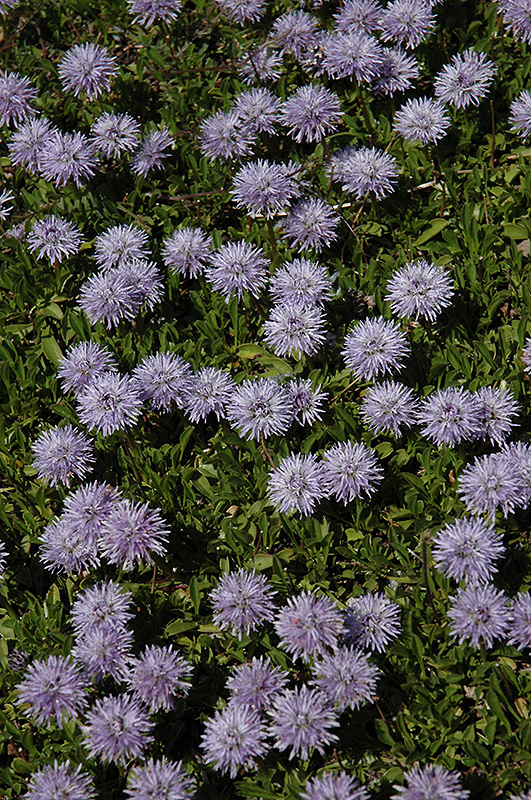Plant Finder
* This is a "special order" plant - contact store for details
Height: 1 inch
Spacing: 10 inches
Sunlight:
![]()
![]()
Hardiness Zone: 4b
Other Names: Dwarf Globe Daisy, Alpine Globe Daisy
Description:
This is a low growing, carpeting species with showy spherical lavender-blue flowers over many weeks in spring; adaptable and easy to grow, forming a dense mat; great for rock gardens; hardy and vigorous
Ornamental Features
Miniature Globe Daisy has masses of beautiful powder blue ball-shaped flowers with lavender overtones and blue centers at the ends of the stems from early to late spring, which are most effective when planted in groupings. Its tiny glossy oval leaves remain green in color throughout the season.
Landscape Attributes
Miniature Globe Daisy is a dense herbaceous perennial with a ground-hugging habit of growth. Its medium texture blends into the garden, but can always be balanced by a couple of finer or coarser plants for an effective composition.
This is a relatively low maintenance plant, and is best cleaned up in early spring before it resumes active growth for the season. It has no significant negative characteristics.
Miniature Globe Daisy is recommended for the following landscape applications;
- Rock/Alpine Gardens
- General Garden Use
- Groundcover
Planting & Growing
Miniature Globe Daisy will grow to be only 1 inch tall at maturity, with a spread of 12 inches. When grown in masses or used as a bedding plant, individual plants should be spaced approximately 10 inches apart. It grows at a fast rate, and under ideal conditions can be expected to live for approximately 4 years. As an herbaceous perennial, this plant will usually die back to the crown each winter, and will regrow from the base each spring. Be careful not to disturb the crown in late winter when it may not be readily seen!
This plant does best in full sun to partial shade. It does best in average to evenly moist conditions, but will not tolerate standing water. It is not particular as to soil type or pH. It is somewhat tolerant of urban pollution. This species is not originally from North America. It can be propagated by division.
* This is a "special order" plant - contact store for details
